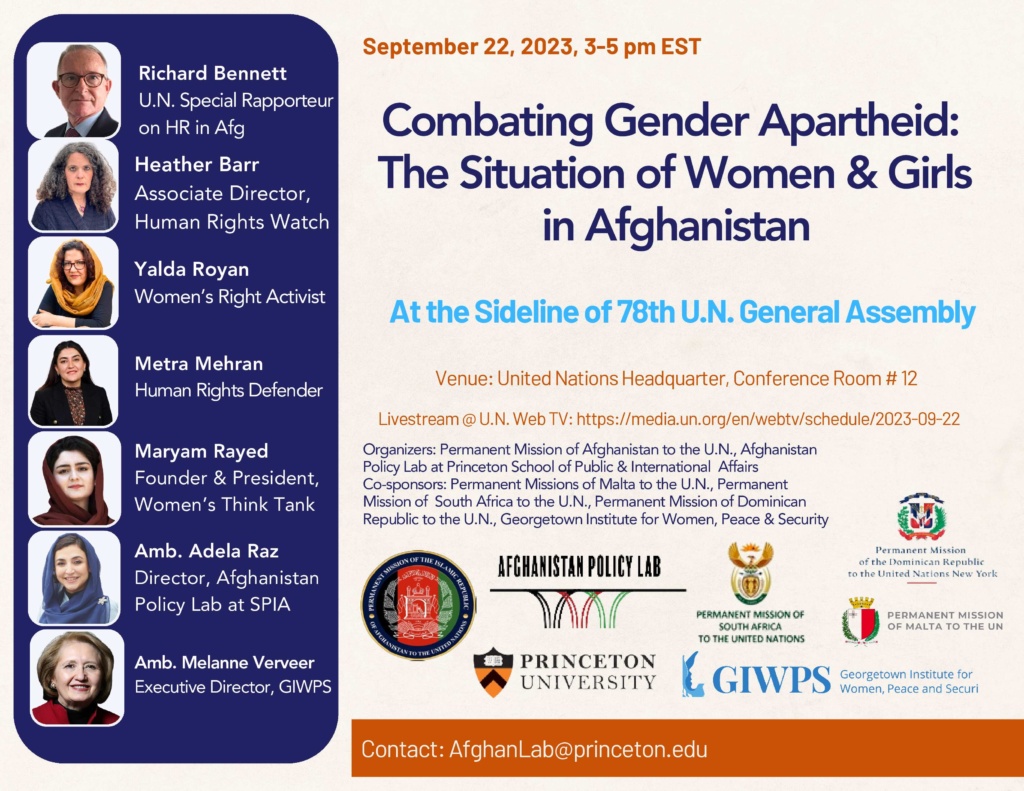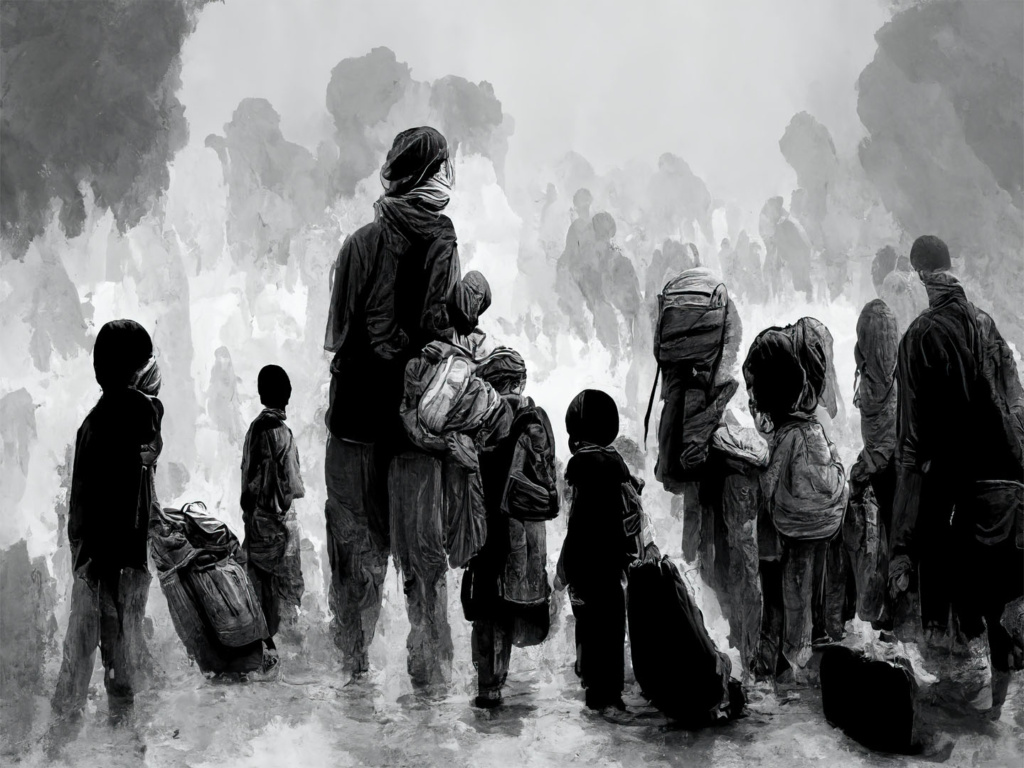Recent Events
Combatting Gender Apartheid: The Situation of Women & Girls in Afghanistan
September 22, 2023
This event was co-organized by the Afghanistan Policy Lab at the Princeton School of Public and International Affairs and the Permanent Mission of Afghanistan to the United Nations, and in co-sponsorship with the Permanent Missions of Malta, South Africa, and the Dominican Republic to the U.N., as well as the Georgetown Institute for Women, Peace, and Security.
The resurgence of the Taliban regime in Afghanistan has marked a significant turning point, rekindling profound concerns about the rights and prospects of the Afghan population, with a particular focus on the vulnerable status of women and girls. This event aims to examine why today’s Afghanistan is a state of “Gender Apartheid” and shed light on the pressing issues pertaining to women’s rights and human rights under the Taliban regime. As the international community gathers for the United Nations General Assembly, it becomes increasingly imperative to confront the multifaceted challenges faced by Afghan women and to ardently champion their fundamental rights and dignity. Under the Taliban regime, Afghan women find themselves grappling with a multitude of challenges that culminate in their almost complete elimination from society. These challenges are deeply ingrained and encompass various aspects of women’s lives, reflecting a systemic Gender Apartheid.
Their decision to bar girls from middle school through higher education has led to the closure of schools and the erosion of educational opportunities. Women’s ability to engage in gainful employment outside their homes has been significantly curtailed, as such that recently women’s beauty salons were shut by the Taliban which not only limits an additional space of social gatherings for women, but also deprives around 60,000 women of livelihoods. This not only undermines their economic independence but also contributes to rising poverty rates among Afghan families.
Movement restrictions by the Taliban, with the need for a male chaperone have drastically limited women’s mobility and autonomy. These measures confine women to their homes and severely restrict their participation in public life. Meanwhile, the dearth of accessible healthcare facilities and skilled medical providers places Afghan women at a considerable disadvantage. This is particularly true in terms of maternal and reproductive health, exacerbating health risks for women. The erosion of legal safeguards has left women vulnerable to violence and abuse, with minimal avenues for seeking justice or protection. This leads to a culture of impunity for perpetrators. The suppression of women’s voices, talents, and contributions has not only stripped them of their cultural and social significance but has also exacerbated a cycle of marginalization and silencing.

Children on the Move: A Child-centered Policy and Learning Workshop
September 22, 2023
There are more children on the move than ever before – fleeing violence, climate disasters, and poverty – and seeking safety and protection within and across borders. Currently, nearly 40 percent of the 100 million displaced persons worldwide are under the age of 18. However, the global discourse on forced displacement and migration rarely focuses on children’s best interests, rights, and needs.
This workshop provided the opportunity to consider what child-sensitive policies and responses to children on the move would look like within U.S. foreign and domestic policy contexts. Young people who have experienced displacement, policymakers, practitioners, and researchers will engage with each other through a series of interactive panel discussions, and registered attendees will be able to share ideas and learn from each other during breakout sessions.
This event was convened by the Georgetown University Collaborative on Global Children’s Issues in partnership with Georgetown University’s Human Rights Institute, Institute for the Study of International Migration, Institute for Women, Peace, and Security, Laboratory on Global Performance and Politics, and InterAction’s Forced Displacement Working Group, International Rescue Committee, Kids in Need of Defense (KIND), Save the Children, and UNICEF USA.

About the Onward for Afghan women initiative
Onward for Afghan Women is an initiative of the Georgetown Institute for Women, Peace and Security (GIWPS) aimed at elevating and equipping Afghan women leaders with opportunities to continue their advocacy on behalf of Afghan women and girls. For over a decade, GIWPS has stood with Afghan women to advance inclusive peace and ensure their voices are centered in global policy debates. Since the fall of Kabul in August 2021 and the Taliban’s swift rollback of women’s rights, GIWPS has played a leading role in the evacuation and dignified resettlement of prominent at-risk Afghan women leaders.
Onward for Afghan Women honors the leaders that they are and will continue to be.
GIWPS engages in rigorous research, hosts global convenings, and nurtures the next generation of leaders. Housed within Georgetown University’s Walsh School of Foreign Service, the Institute is headed by the former U.S. Ambassador for Global Women’s Issues, Melanne Verveer.
Make a donation
Donate to help elevate and equip Afghan women leaders with opportunities to continue their advocacy on behalf of Afghan women and girls.
SIGN UP
Sign up for email updates on this escalating crisis
